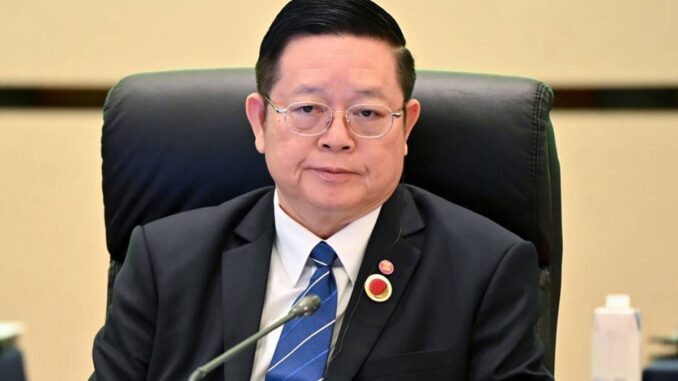
VIENTIANE, Laos — Connectivity and resilience are critical to the continuing progress and prosperity of the Association of Southeast Asian Nations (Asean) amid rapid changes in world politics, global economy, and mass media, Asean Secretary-General Kao Kim Hourn said at the 8th Asean Media Forum (AMF).
He raised the need to ensure the effectiveness and integrity of the media in addressing misinformation that affects the people in the region.
The AMF, established by the Asean Secretariat in 2017, has become an annual flagship forum that brings together media leaders from major English newspapers across the region to engage with Asean policymakers, officials, academics, opinion leaders, and business leaders.
Asean Secretary-General Kao Kim Hourn. EPA-EFE/KAZUHIRO NOGI / POOL
“Many citizens are still unaware of how Asean directly affects their lives and communities. This highlights the urgent need for enhanced communication strategies to bridge this gap,” Kao said.
“We must do more to inform and engage our peoples about the benefits of regional integration and cooperation, fostering a sense of ownership and pride in our Asean identity,” he said in a video message.
Nicole Stechmann, charge d’affaires of the German Embassy in Laos, said that “quality journalism has become our best weapon against the dangers of disinformation.”
“It is your commitment to honesty, accuracy, and depth that can help build a resilient public, one capable of seeing through attempts to mislead and manipulate,” she said in a speech. “In this century, info spreads at an unprecedented speed. We have a world where a single story, tweet, or headline can reach millions in just a few seconds.”
“While this power opens doors to educating and enlightening, it also presents a stark risk of the spread of misinformation and disinformation, falsehoods, manipulated narratives and misleading information proliferate, and their influence can have harmful impacts on society from eroding trust in institutions to deepening division among communities,” she added.
“By strengthening connections within our region and beyond, we can unlock new opportunities for growth, innovation and cultural exchange,” Kao said.
He said building resilience “will equip Asean to navigate uncertainties and challenges more effectively and in a timely manner.”
“Traditional media outlets face growing difficulty in reaching audiences effectively as social media increasingly serves as a primary information source for many, especially young generations,” Kao said.
“With this shift comes the proliferation of misinformation, declining trust in traditional media and the economic pressure that threatens the integrity and independence of journalism,” he said.
Kao added that social media has “indeed democratized access to information, but it has also become a powerful vector for spreading false narratives, complicating the media landscape across the Asean nations and beyond.”


Be the first to comment